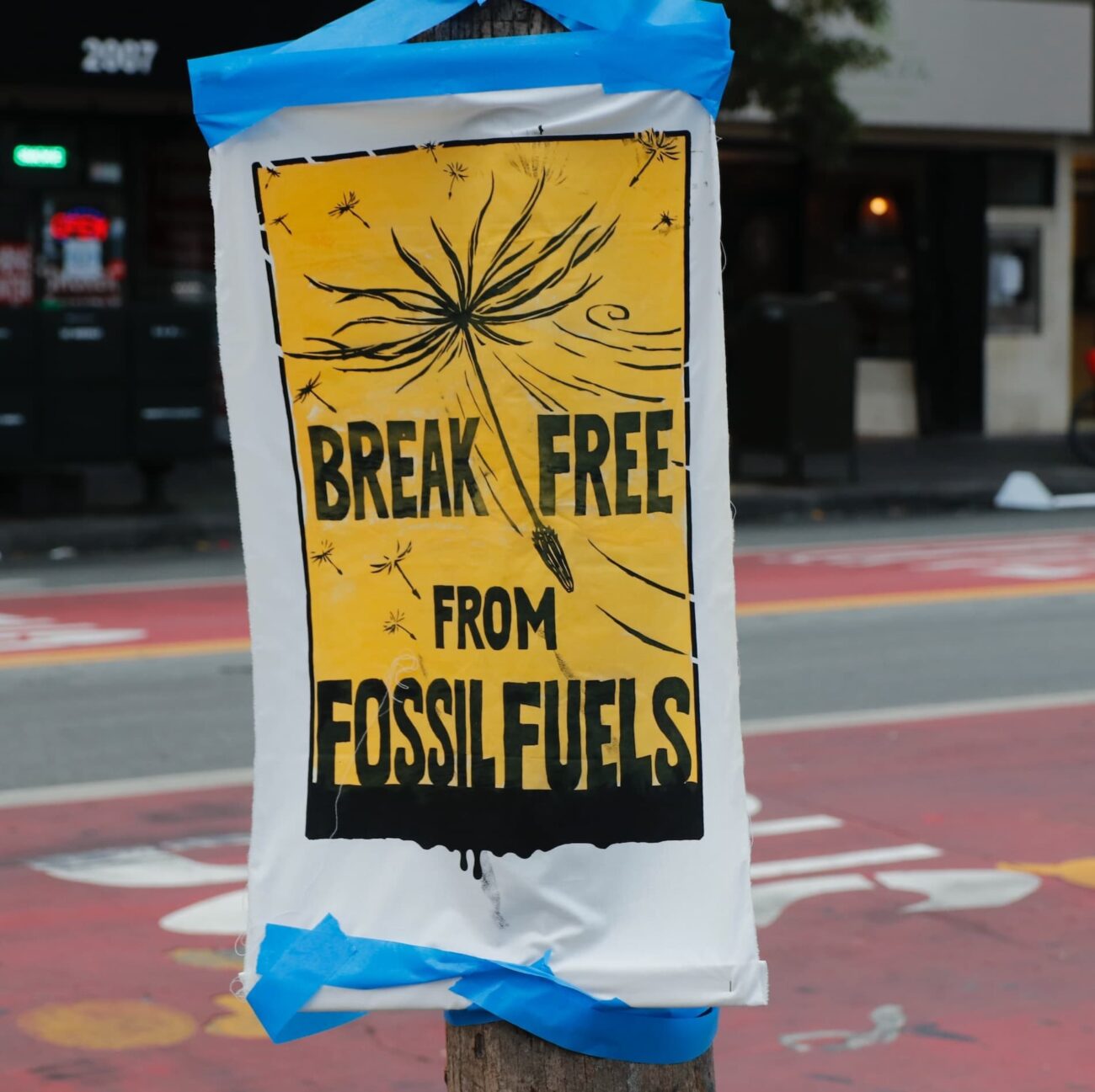
Is Your Bank Financing The Climate Crisis?
In late 2020, financial firm JPMorgan Chase & Co. announced a new sustainability initiative that would “align key sectors of [their] financing portfolio with the goals of the Paris Agreement” and “set a path toward global achievement of net-zero emissions by 2050.” A few months later, Citi made a near-identical declaration of their goal “to reduce emissions with urgency in the near-term,” followed by Wells Fargo committing to “support science-based research on low-carbon solutions.”
And yet, in 2022, the National Oceanic and Atmospheric Administration reported that “global average atmospheric carbon dioxide was 417.06 parts per million,” a record high and the 11th year in a row marking an increase in atmospheric carbon dioxide levels. The stated goal of reducing emissions simply isn’t happening–in fact, the situation is getting worse.
While major financial institutions have pledged their commitment to finding solutions to our environmental crisis, they have also been actively investing in the very fossil fuel industry that is causing problems in the first place.
While major financial institutions have pledged their commitment to finding solutions to our environmental crisis, they have also been actively investing in the very fossil fuel industry that is causing problems in the first place.
The Situation
According to the latest Banking on Climate Chaos report, written by a coalition of advocacy organizations including the Rainforest Action Network, the Sierra Club, the Indigenous Environmental Network, and others, the sixty largest banks in the world have contributed well over five trillion dollars to the fossil fuel industry since the Paris Agreement was signed in 2016. In 2022 alone–i.e., after several banks released their net-zero pledges publicly–JPMorgan Chase & Co. invested $39.24 billion, Citi invested $33.943 billion, and Wells Fargo invested $37.398 billion in international oil and gas companies.
These three companies are currently the highest contributors to fossil fuel financing, with other familiar names such as Bank of America, Barclays, Morgan Stanley, and Goldman Sachs appearing in the list of top fifteen financiers. And there is no apparent slowing down–in fact, the report notes that at least fifteen banks worldwide have increased their contributions since 2021.
What We Can Do
To ensure a healthy future for all, we need banks to divest from the fossil fuel industry. Fortunately, awareness around the issue is on the rise. Earlier this year, a coalition of U.S. Senators and Representatives introduced the Fossil Free Finance Act, which would give the Federal Reserve greater authority to hold banks accountable to their net-zero commitments. Climate activists have also taken to the streets to call attention to banks’ ties to the fossil fuel industry.
We inadvertently contribute to the fossil fuel industry based on who we’ve chosen to bank with.
At the individual level, we can take action by divesting from these banks ourselves. The money we deposit into our accounts is what banks use to make their loans and investments–in essence, we inadvertently contribute to the fossil fuel industry based on who we’ve chosen to bank with.
NerdWallet has put together a list of socially responsible banks that have backed up their commitments to the environment with third-party certifications, such as B Corp certification. The website Mighty Deposits also allows you to find banks and credit unions that invest in issues and communities you care about.
References
- “Our Commitments” – JPMorgan Chase & Co
- “Net Zero – Global Investment Bank and Financial Services” – Citigroup
- “Wells Fargo Sets Goal to Achieve Net Zero Greenhouse Gas Emissions by 2050” – Wells Fargo
- “Climate Change: Atmospheric Carbon Dioxide” – NOAA
- “Pressley, Markey, Tlaib Introduce Legislation to Stop Big Banks from Financing Fossil Fuel Projects” – Congresswoman Ayana Pressley
- “Climate activists target nation’s big banks, urging divestment from fossil fuels” – NPR
- “Ethical Banking: What Are Socially Responsible Banks?” – Nerd Wallet
- “About | Mighty Deposits” – Mighty Deposits

